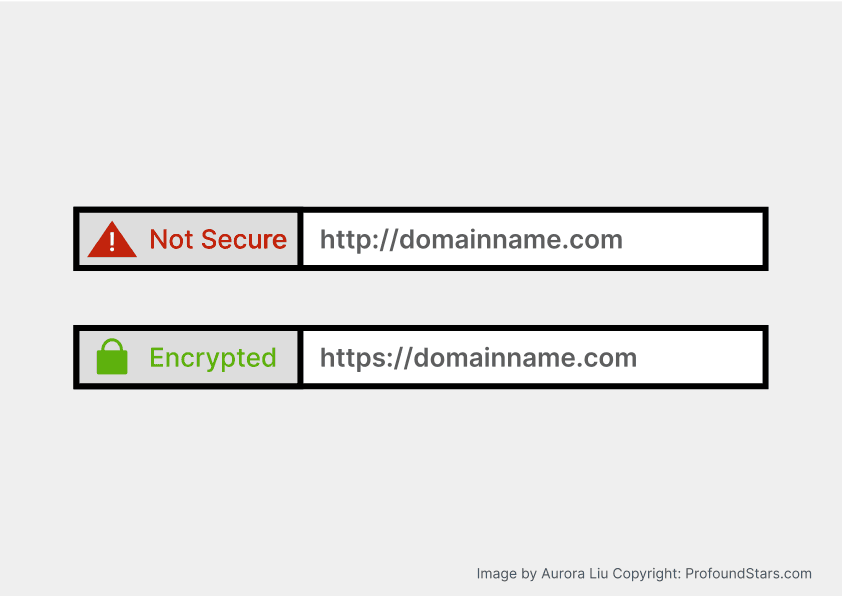
What is the difference between HTTP and HTTPS?
You might have noticed that when entering a web address in a browser, the 'http://' is automatically added to it. That's because the data transferred between a browser and a server uses a network protocol called HyperText Transfer Protocol (HTTP).
However, the data transferred through HTTP is plain text without encryption, making it much easier to be intercepted by anyone on the internet. All the sensitive information, including user's IP, browser, password, and credit card details, is exposed to the public. The content from website server can also be altered before it gets to the client.
To secure communication between clients and servers, it’s crucial to ensure that all data is encrypted. The HTTPS, shortened from HyperText Transfer Protocol Secure, whose "S" stands for secure, is an encrypted version of HTTP.
Why should a website need an SSL/TLS certificate?
A website with HTTPS (https://) in its URL means that it is encrypted, secured, and authenticated by an SSL/TLS certificate. The TLS (Transport Layer Security) is the successor version to the SSL (Secure Sockets Layer) protocol, but the two terms are often used interchangeably due to their history. The SSL/TLS certificates are like the ID cards of websites that are authenticated and issued by the trusted third parties called certificate authorities (CAs).
It is essential for a modern website to implement the SSL/TLS encryption protocol. A website with a valid digital certificate is considered as a "trusted website”, because all communication between the client and server is encrypted. The important sensitive data used in contact forms, shopping carts, and login information is all under protection.
Does it matter if a website doesn't have an SSL/TLS certificate?
Due to the insecure connection, modern browsers have marked "Not Secure" on websites that use HTTP to alert users. If a website doesn't have an SSL/TLS certificate, visitors and customers might have doubts about its authenticity. They might be afraid of their data being stolen and not willing to interact with it.
Google also regards HTTPS as a ranking factor for SEO (Search Engine Optimisation). Hence, having a valid SSL/TLS certificate is indeed a crucial factor in increasing website traffic.
